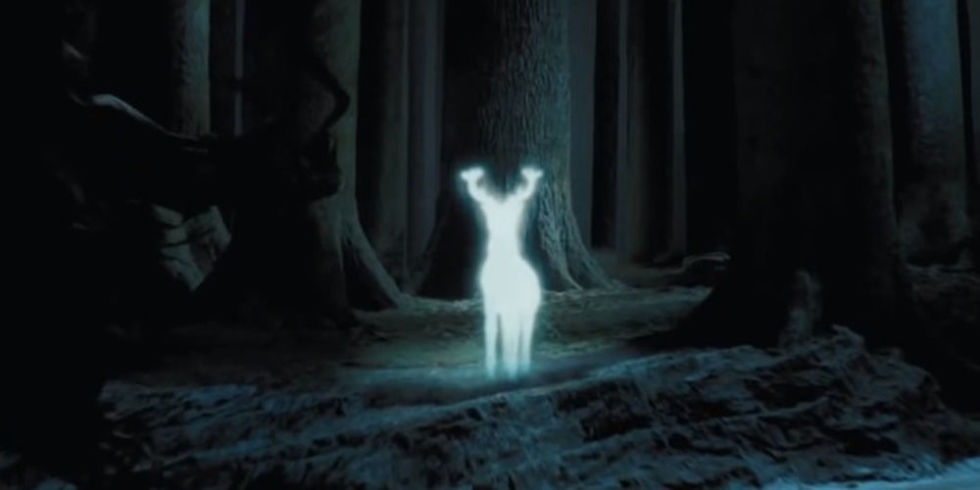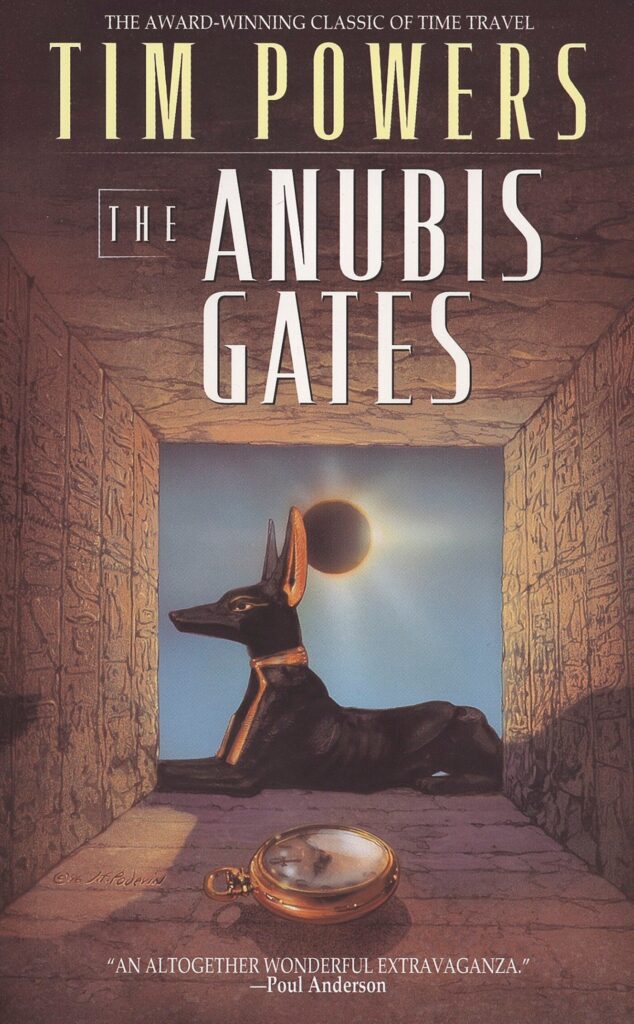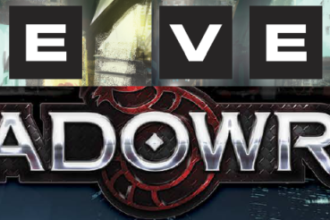How to: Time traveling in RPGs – The Unique Timeline

Thumbnail image from Netflix show Dark
With all other time-traveling methods out of the way, we end up with my favorite one: The Unique Timeline. We went from ways to manage time traveling that involved many deus ex machinas from the GM’s part, some others in which a huge amount of planning is needed before you start playing. The one we are going to talk about today is its own beast, in some ways very different from the rest. Let’s stop looking at articles from the past and go ahead to finish this series!
The Unique Timeline
What is it that makes this time-traveling method so unique as the name implies? Instead of having timelines save your life as a GM by meaning that some mistake you did means the PCs are in some other timeline, there is no room for error here. It may seem daunting at first. However, we are going to see many ways to ease the preparation and leave room for error. All you need to understand is how to apply Checkhov’s gun rule to it (CLICK HERE to read my article on it).
What does it mean that there is a single and unique timeline though? What does it imply? That’s when the concept of destiny comes into play. There is nothing you can do to change destiny. It is destined for you to go back in time to try to change it, and it is due to that reason that the future will be as it was foreseen. In a way, it’s the most scientific method of the bunch. If you travel back in time when you were just 2 years old, then it means that in the past when you were that age your future you arrived at that time period, and the changes the future you made changed what the future would look like. A series that does this beautifully is Dark, as well as the Harry Potter and the Prisoner of Azkaban movie and/or book, and an excellent book I recently read: The Anubis Gates.

Scene from Harry Potter 3
Having the timeline stay the same
The most important factor to take into consideration when running Unique Timeline games is that the timeline MUST stay the same. There is a little bit of room for error, but not much really. How is it that shows like Dark maintained a single timeline so well? Did they really think the WHOLE plot through from the very beginning? They could have, but they most probably didn’t. My theory is that they used something extremely similar to my take on Chekhov’s Gun method. Once in a while, the show would add a random item, plot point, or character to the series (in our case those would be NPCs). Once they appeared on screen, there’s a huge chance they have some relevance to the story. That’s why most of these stories in media take place in a limited area. In the case of Dark, they use a small town as the location everything takes place in. I talked more about this in the Do-Over: The Loop article
Once you added a new character or item to the scenes, you know it is now important and must make a note about it. Somewhere in the future, one of the protagonists or other characters will create a reason for the item or character to have been there at that space in time. If you are having a golden monkey idol appear in Africa in 1879 and a time traveler takes it to the year 2020 to put it in a museum then that means that the idol shouldn’t exist within that period of time as it is nowhere to be found. However, what does it mean that a cultist found a golden monkey idol that looks just the same in Australia in the year 1964? That could either mean that someone stole the idol after it was brought to the museum in 2020 and returned it back in time, or someone made a replica. Both options allow the timeline to remain logical without creating further timelines.
Everything is connected
A very common trope within this kind of time traveling stories is having most things taking place be connected. As time traveling is usually a thing that very few can do, if not only the protagonists, it usually means that most things that don’t make sense at the beginning end up being fixed by a future event (this future event in the story can either take place in the past or the future). The protagonist of a story might have a dead parent at the beginning of it, to find out as an adult that their father was actually a terrorist. Later in the story, the protagonist is forced to travel back in time to kill their own father, thus connecting everything in the story.
Mysteries
Having things in a story be connected with each other solves mysteries about things that are not explained. Maybe without knowing you will travel back in time, fall in love with the woman that would become your best friend’s mother and you end up being your own best friend’s parent. A very common thing to happen is to have those people who time travel be forced to shut up or hide they are from another time. Why should this happen? Imagine if a player character had traveled back in time to tell their younger self they are their future version. If that was the case, then the player character should remember that encounter from his childhood (but he/she doesn’t), creating a paradox. For the unique timeline to work properly, we should have a reason for these kinds of events to be difficult, if not impossible to happen.

Terminator 1
Destiny
Having to maintain a single timeline without inconsistencies in it means that there is something already written about your future, and you are not much more than a puppet on a train ride to your death. This sounds extremely demoralizing for some, and a totally valid reason for not wanting to play a story of this sort, but there is a certain charm to it in my opinion. Even though every action is already taken into account, you still don’t know which decisions you are going to be taking until you take them.
What happens if we know what is going to happen in the future and we try to stop it? It’s already prewritten you are going to try, meaning that if you kill the assassin that was supposed to kill the queen then history might end up fixing the problem in some other way. Maybe that means that the queen will die by falling down the stairs nonetheless, some other assassin will kill her, the protagonist might end up taking on the crime accidentally. If you want to go a step further, you can have the original assassin suspect there was a chance of them dying attempting to kill the queen, making them travel in the past to the future, kill the queen, and when the time arrives to actually kill the queen, have their present self go to the now present crime scene to be stopped by the protagonist so the past version of the assassin can kill her. Ok, maybe I went Inception level of complexity with that example, and hopefully it is easy enough to comprehend, but you get the point: attempting to stop a prewritten event only leads it to happen in a different way. There is not much you can do about it (and that may be either frustrating or interesting to players).
Paradoxes
Even though we may try to stop paradoxes from happening along the way, why wouldn’t a paradox be allowed to exist? It can create some kind of interesting red herring for the players, or just have it be there for the players to see it and shout “That’s a paradox!” (let’s face it, your players would love to find a paradox in your story and feel smart about it). What happens if you find a time machine hidden in a tomb, travel back in time and gift it to Cleopatra? Cleopatra would have been able to know technology from the future, be able to create the pyramids with it, and be mummified with the time machine, only to be found by an explorer, and get buried with it in the same cemetery you originally found the time machine. Who created the time machine then? No one. It just exists, trapped in a never-ending cycle; a paradox.
How can we apply paradoxes to our games? That highly depends on the style of game you are running. If it’s a mystery, the paradox could be a red herring. You could also make something as big as having the murdered have been killed by a future version of themselves, but that’s not what this time-traveling method is all about as you would break the logic of the genre, meaning no rule can be trusted. If you wanted to do something like that, you can have a past version of the murdered kill their present self, which isn’t actually a paradox. The truth is paradoxes don’t really belong in this time-traveling method, as it breaks all rules from it, so if you are going to place one, make sure there may be some logical explanation, or don’t have it be as important to the story. Dark has an example for this in the series that is extremely well executed (I won’t spoil it though).

Cover from Anubis’ Gates book
Creating a Unique Timeline time travel story in your RPG
To create a great Unique timeline time travel story you need to focus on having its rules not be broken at any time. Let the story flow and add elements to it through the Chekhov’s Gun rule, only for them to become important later. We want the players to have the “Aha” moments often, in order to make them start conspiracy theories (I may write a full article on having your players become conspiracy theorists of your games in the future). If a player sees something out of place, they might probably start connecting it with some other things and say it aloud for the other players to hear. That’s when you take down notes and if the idea is good enough, make it a reality. Make sure it doesn’t conflict with the rest of the things that are happening in the story that the players haven’t yet discovered.
Which kind of genres and/or games go well with this time-traveling theme? I can imagine pretty much all genres working with this. However, having time travel of this sort appear makes it pretty much what the whole story will revolve around. Take constant notes of the things going on, even trivial facts if you want to. The first quest giver in the story might ask the player characters to solve a problem they will end up provoking in a later trip to the past. Your Call of Cthulhu game may have an eldritch horror kill Abraham Lincoln while the player characters traveled back to that age, meaning one of the player characters must stay in the past and take Lincoln’s place for history to carry forward.
In conclusion, there aren’t many things you need to do in order to have a successful Unique Timeline time travel story: Plant clues that will end up having a meaning later in the story once the player characters have time-traveled enough. Find a reason for player characters to not go back in time and spoil the story to their past self (or find a reason for the past self to forget it, believe it a dream or illusion). Take notes on the things your players notice, as well as the things you may improvise as a GM, in order to bring them back later. That’s about it. If you need to, cut the session short the moment they do another time travel to better think what their destination is going to be like when they arrive. Do you think the writers from Dark knew some of the things they planted in Season 1 would end up becoming? They just dropped clues through the Chekhov’s gun method, note it down, and find a way to connect them to the story later that makes sense. If they could pull it off, then you clearly can as well!
And with this, the Time Traveling series comes to an end. I hope you liked it and might come back to some of my future series. I have many more things to write about and help you become an even better GM!
If you would like to reread some of the other chapters in this series, click here:
How to: Time Traveling in RPGs
If you liked this
If you are looking to read one of my past series of articles, in which I explain the level design process to give tell a story through your dungeons, CLICK HERE



